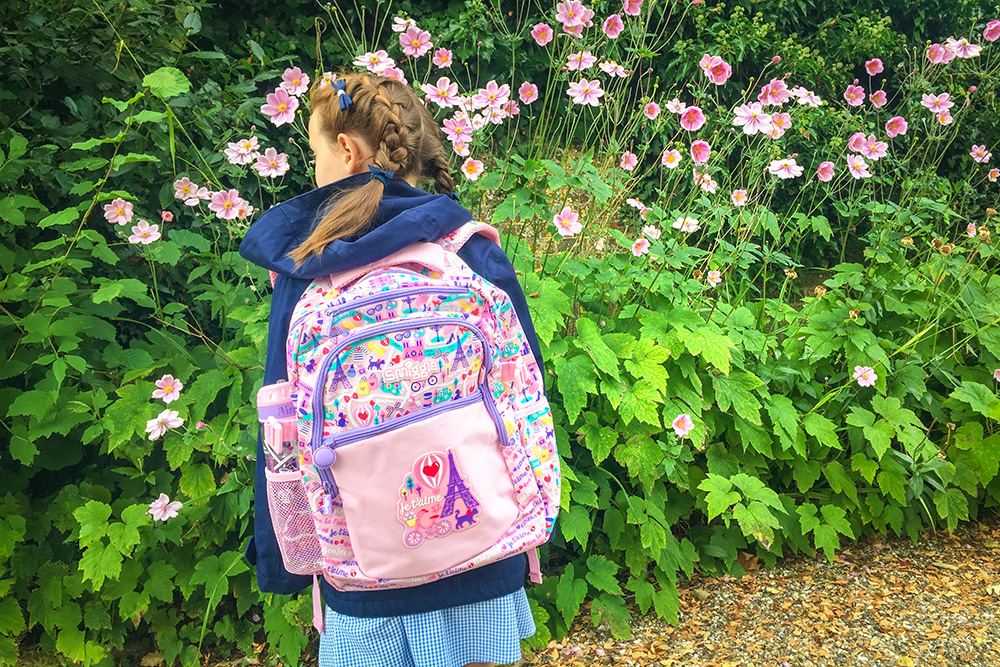As a child, I always felt that summer was too short—Back to school in France meant that after two months of freedom, the end of August signalled one thing: the holidays were over.
Everything “smelled” like la rentrée des classes (back to school) in the stores, with school supplies filling the shelves.
Even though going back to school wasn’t something I looked forward to, la rentrée was undeniably a significant event that marked the French calendar.
In France, “back to school” is more than just the start of classes; it’s a nationwide event that impacts nearly every aspect of life.
Known as la rentrée des classes, this moment signals the end of the long summer break and the beginning of a new school year.
Unlike in other countries, where the school year might start at different times depending on the region, in France, la rentrée happens on the same day across the nation—usually in early September.
But la rentrée isn’t just about students returning to their desks.
It’s a period that touches everything from the economy to family routines.
For 12 million students and their families, this day is all about new beginnings, fresh supplies, and a whirlwind of emotions.
The date is so important that even the government decides when it will be, coordinating with various sectors, including tourism and local economies.
Whether you’re a student getting ready to meet new teachers, a parent bracing for the back-to-school rush, or someone curious about how this event shapes French culture, la rentrée des classes is a fascinating tradition deeply woven into the fabric of French life.
Let’s study this event closely!
The French Education System at a Glance
Understanding back to school in France starts with knowing how the French education system is structured.
It’s a well-organized system that’s pretty straightforward, but a few things make it unique.
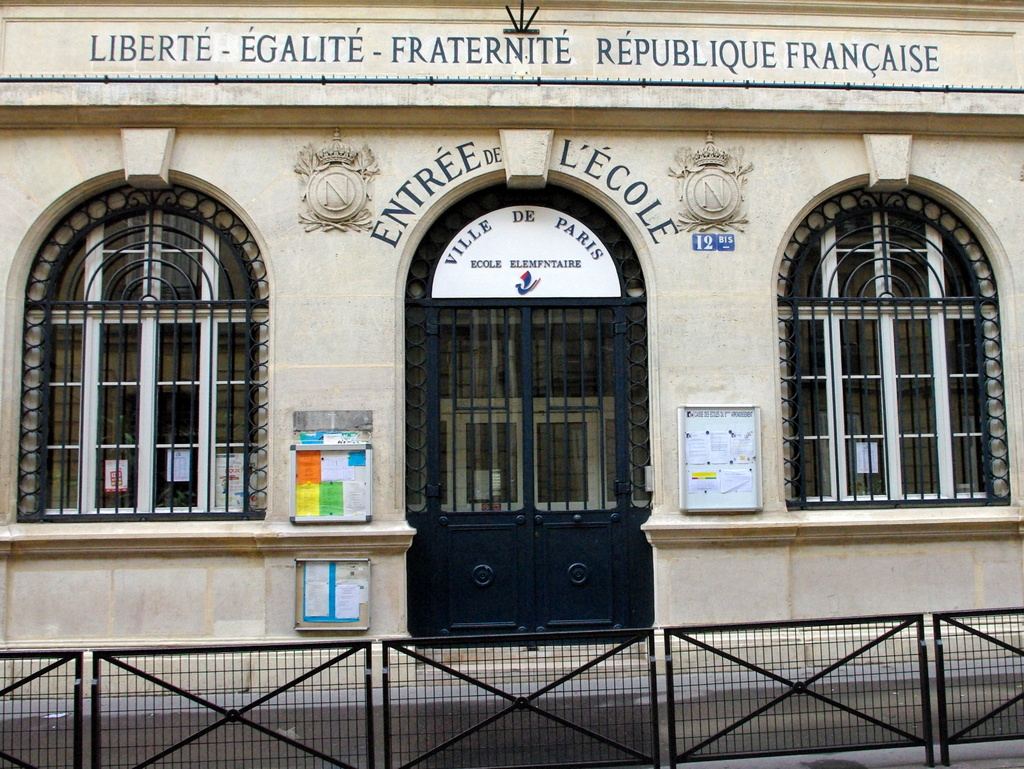
The French school system is divided into several stages:
- École Maternelle (Preschool): This is where it all begins for French children, starting as early as age 3. It’s not mandatory, but nearly all kids attend. The focus here is on socialization, basic motor skills, and early learning.
- École Élémentaire (Elementary School): From ages 6 to 11, children attend école élémentaire. This stage is about learning the basics—reading, writing, and arithmetic, with a bit of science, history, and art thrown in for good measure.
- Collège (Middle School): Around age 11, students move on to collège, which lasts until they’re about 15. This stage is more intense academically, with a broader curriculum that includes languages, math, science, history, and even philosophy.
- Lycée (High School): The final stage is lycée, where students prepare for the all-important baccalauréat (often shortened to bac), a national exam crucial for university admission. This stage is from ages 15 to 18.
One thing that stands out about the French system is its uniformity.
The National Ministry of Education sets the curriculum (le référentiel), meaning that students across the country, from Paris to a small village in the Alps, are learning the same things simultaneously.
This also means that la rentrée des classes happen on the same day for nearly everyone, which brings a strong sense of unity and shared experience.
The Cultural Significance of Back to School in France
Back to school in France isn’t just a routine event—it’s a national milestone.
La rentrée des classes is when the country transitions from the laid-back vibes of summer to the structured pace of the school year.
The French take la rentrée very seriously, woven deeply into the fabric of daily life.
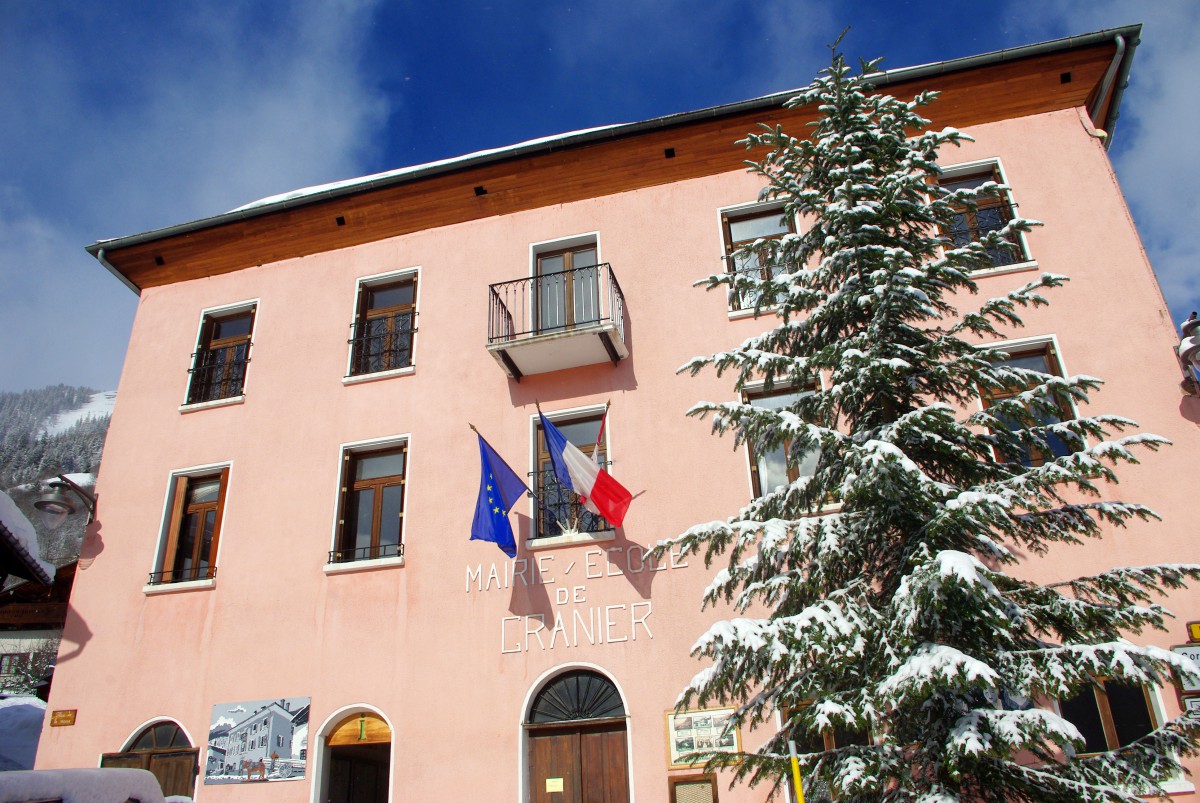
The School Calendar
First, there’s the timing.
The Ministry of Education sets the official date for la rentrée; for the 2024 school year, it falls on Monday, September 2nd for students.
Teachers, however, head back a bit earlier on August 31st to prepare everything for the big day. This is la prérentrée.
This centralised coordination ensures that everyone is on the same page, quite literally, when the school year begins.
The importance of la rentrée goes beyond just students and teachers.
It marks the end of the summer slowdown and the return to regular routines for everyone.
Businesses ramp up again, political activities resume, and there’s a noticeable shift in the pace of life.
Even the tourism industry is affected, as the school calendar plays a significant role in determining holiday schedules.
When the economy bounces back
La rentrée is also a period of significant economic activity.
Stores are stocked with everything from school supplies to new clothes, and parents are busy checking off long lists of items their kids will need.
This shopping frenzy is a key part of the rentrée experience, and it’s a moment when retailers across the country see a substantial boost in sales.
But it’s not just about the practicalities.
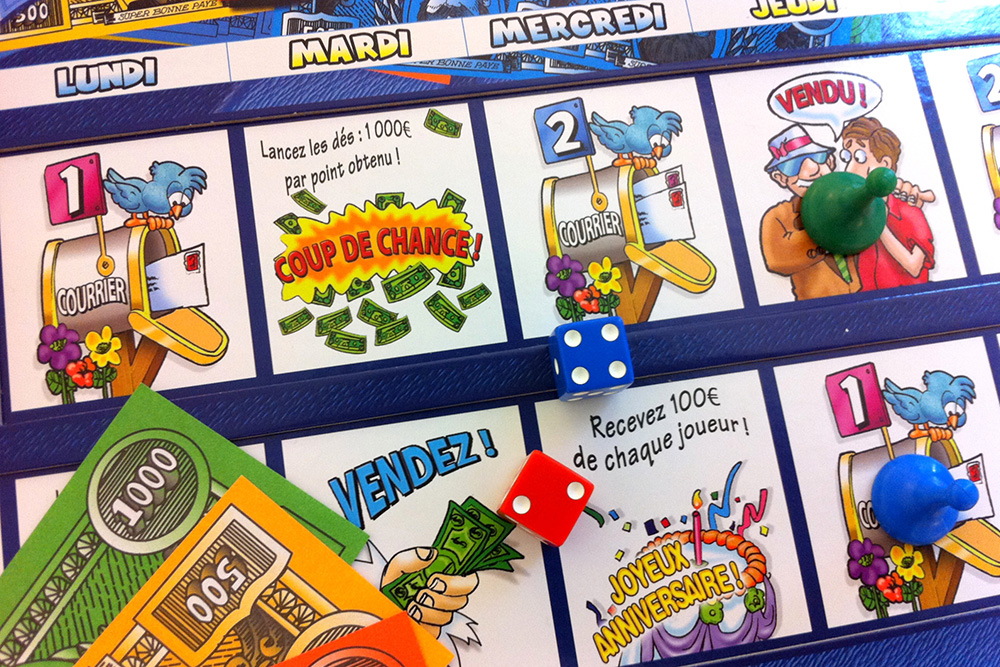
When the emotions take over
La rentrée is an emotional time as well.
For students, it’s a mix of excitement and anxiety—new classes, new teachers, and sometimes even a new school.
The return to school also brings a sense of renewal, a chance to start fresh with new goals and expectations.
For parents, it’s a whirlwind of emotions, too, from the joy of seeing their children grow to the stress of ensuring everything is in place for a smooth start.
Even for those without school-aged children, la rentrée is a notable event.
Many aspects of French life, from the new television season to the reopening of local clubs and activities, are timed to coincide with the school calendar.
In this way, la rentrée des classes is more than just the first day of school—it’s a cultural touchstone that signals the start of a new chapter for the entire country.
Preparing for “La Rentrée”
Back to school in France is more than just a date on the calendar—it’s a whole process that starts well before the first school bell rings.
Preparation is key, and for French families, la rentrée des classes involves a lot of planning, shopping, and, let’s be honest, a bit of stress too.
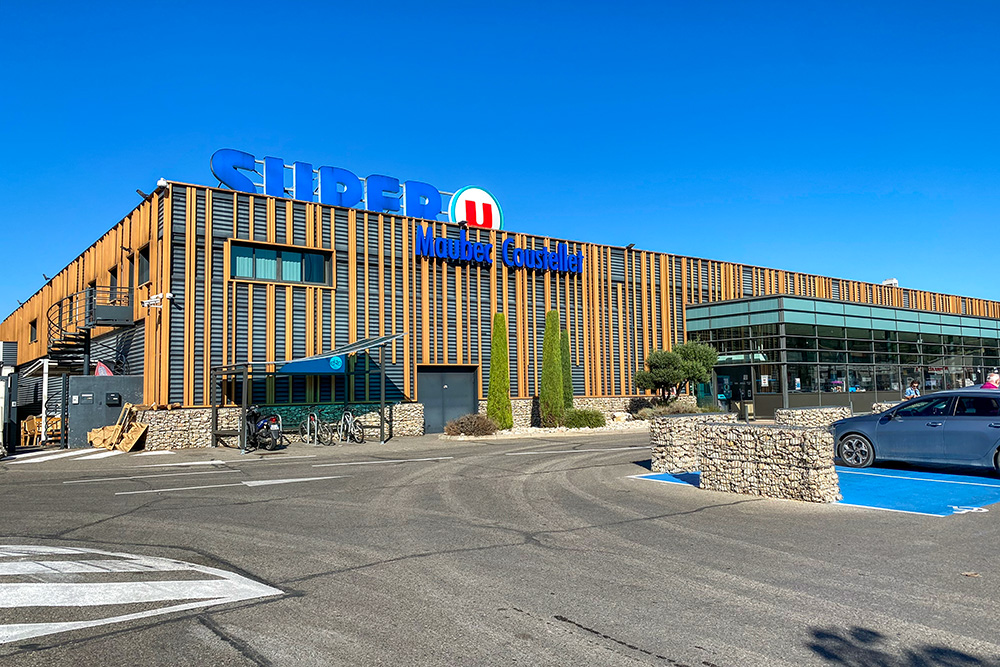
The School Supply List (“Fournitures Scolaires”)
One of the most iconic aspects of la rentrée is the school supply list, known as fournitures scolaires.
Each year, parents receive a detailed list of items their children will need—from pens and notebooks to more specific items like a particular type of calculator or art supplies.
This list is no joke; it’s usually quite extensive and very specific.
You might find yourself hunting for a particular brand of notebook or a binder of a specific size, and woe to the parent who leaves this shopping until the last minute!
Stores across France are fully prepared for this annual shopping spree.
As soon as August hits, shelves are stocked with everything you could possibly need for la rentrée.
It’s a busy time, with families filling the aisles, ticking off items from their lists.
And it’s not just about supplies—new clothes, backpacks (les cartables), and shoes are also part of the rentrée tradition.
This shopping period is a major event for retailers, and many offer special promotions to attract customers.
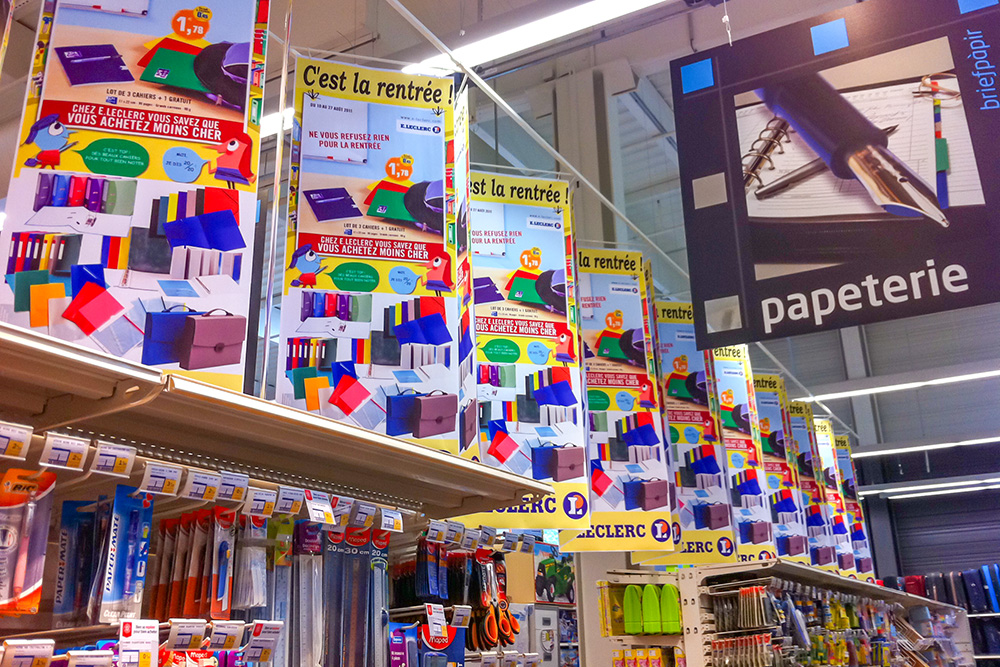
Back-to-School Shopping Tips
Given the crowds and the stress of last-minute shopping, seasoned parents know it’s best to get started early.
Not only does this ensure that you find everything on the list, but it also helps avoid the rush that inevitably occurs in the final days of August.
And while shopping, getting your child involved is also a good idea.
Letting them pick out their own notebooks or a new backpack can make the process more enjoyable and help them feel more prepared for the year ahead.
Psychological Preparation
Beyond the practical side, la rentrée also requires some emotional and psychological preparation.
The start of the school year can be exciting and nerve-wracking for students.
They might be entering a new grade, meeting new teachers, or even starting at a new school altogether.
For example, students moving from école élémentaire (elementary school) to collège (middle school) face a big change—not just in terms of academics but socially as well.
They go from being the oldest in their school to being the youngest in a much larger and often more intimidating environment.
Parents play a crucial role in helping their children navigate these changes.
Talking about what to expect, visiting the school beforehand, and establishing a back-to-school routine can all help ease the transition.
And let’s not forget, parents might need a bit of psychological preparation themselves!
Seeing your child grow up and move on to a new stage can be emotional, and it’s essential to give yourself time to adjust as well.
The Proper Day of Back to School in France
When the big day finally arrives, going back to school in France is an event filled with anticipation and anxiety.
La rentrée des classes is more than just showing up at the school gates—it’s the start of a new chapter, and for many, it’s a day full of firsts.
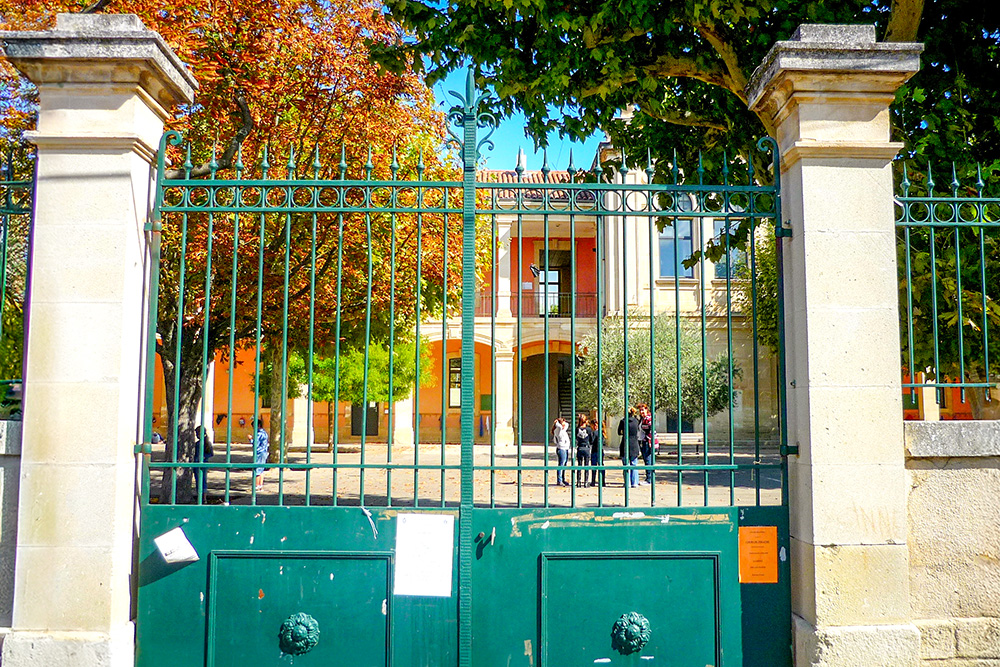
The First Day Back
On the morning of la rentrée, schools across France buzz with activity.
The streets are filled with parents walking their children to school, backpacks in tow, and there is noticeable energy in the air.
At the school gates, there’s a mix of emotions—some kids are eager to see their friends after the long summer break, while others are more hesitant, clinging to their parents as they face the unknown of a new school year.
Inside the school, the first day is all about settling in.
Teachers usually take time to welcome their students, introduce themselves, and explain what to expect in the coming year.
It’s a day for getting to know the classroom, meeting new classmates, and, in many cases, receiving the timetable that will dictate the students’ lives for the next nine months.
The pace is generally relaxed, allowing students to return to the routine after the summer.
The day can be particularly significant for those starting a new school, like the néo-collégiens (new middle schoolers).
They might be learning to navigate a new, larger school building, figuring out where their classrooms are, or meeting older students.
This transition can be a bit overwhelming, but schools are generally well-prepared to help students adjust.
Orientation sessions, tours of the school, and plenty of staff are often available to guide students through the process.
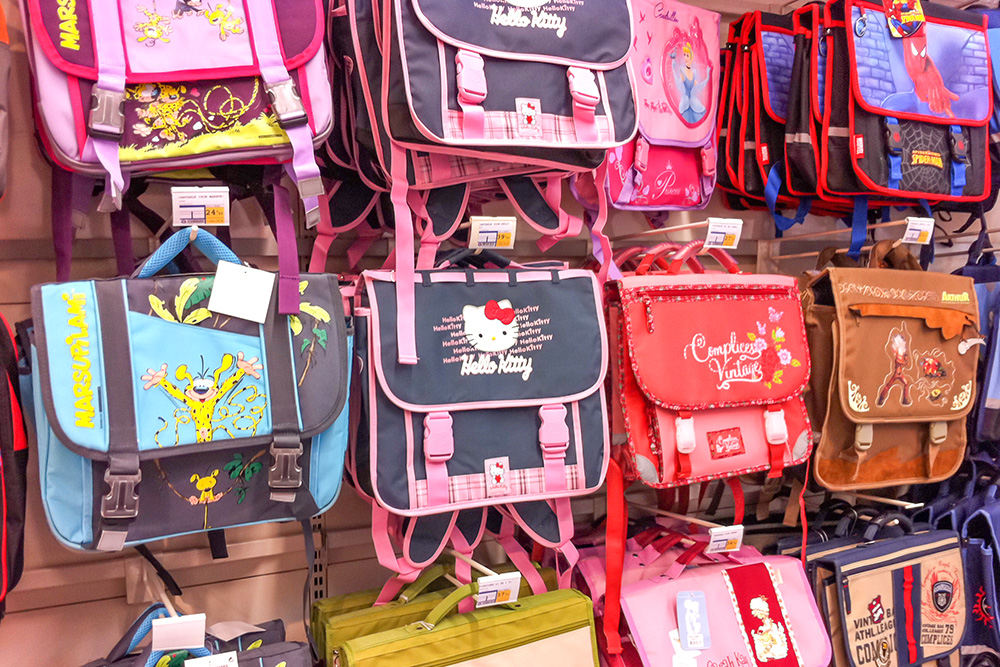
Social Integration
One of the most critical aspects of the first day is social integration.
La rentrée is the time when students reconnect with old friends and start forming new relationships.
For younger children, this might mean meeting new classmates as they move up to the next grade.
For older students, it could involve more complex social dynamics, especially in a new environment like collège or lycée.
Teachers often play a key role in facilitating this integration.
On the first day, they might organize icebreaker activities or group work to help students get to know each other.
The social aspect of la rentrée is crucial, as it can set the tone for the entire school year.
Feeling comfortable and accepted by peers can make a big difference in how students experience the year ahead.
For parents, the first day is a mixture of pride and a bit of sadness.
Seeing your child walk through the school gates, maybe for the first time, is a powerful moment.
And while there might be some tears—both from the kids and the parents—it’s also a moment of growth and new beginnings.
Comparison with “Back to School” in Other Countries
Back to school is a universal experience, but how it unfolds can vary significantly from one country to another.
In France, la rentrée des classes is a highly organised national event, but it is interesting to compare this with how other countries approach the start of the school year.
Timing and Coordination
The timing is one of the biggest differences between back to school in France and other countries.
In France, the school year starts on a set date across the entire country, typically in early September.
This centralised approach ensures that all public schools, from the largest cities to the smallest villages, begin classes at the same time.
Even the private schools often follow the same schedule.
Back to School in the US
This contrasts with countries like the United States, where the start of the school year can vary widely depending on the state or even the individual school district.
In the US, for example, some schools start as early as early August, while others may begin in September.
Back to School in the UK
In the UK, the school year also starts in early September, but the specific dates vary more, especially between regions.
Some schools might have a staggered start, with different year groups beginning on different days.
This lack of a single national start date can make the back-to-school experience feel less unified than it is in France.
Back to School in the New Caledonia
Another interesting point of comparison is with regions like New Caledonia, a French territory in the southern hemisphere.
There, the school year starts in January or February, aligning with the summer break in that part of the world (this is similar to Australia and New Zealand).
This shows how, even within the French system, la rentrée can vary depending on geographical location.
School Culture and Expectations
The way back to school is celebrated and perceived also differs between countries.
In France, la rentrée is seen as a serious event.
There’s a strong focus on academics right from the start, and both parents and students approach the day with a certain level of formality.
In contrast, in countries like Australia or Canada, the first day of school might have a more relaxed atmosphere, with a greater emphasis on easing students back into their routines after the summer break.
In France, students are expected to be ready to dive into their studies immediately.
The first day often includes distributing textbooks, setting academic goals, and starting on assignments.
This can be quite different from places like the US, where the first week of school might be more about getting to know the classroom, engaging in icebreaker activities, and slowly transitioning back into academic work.
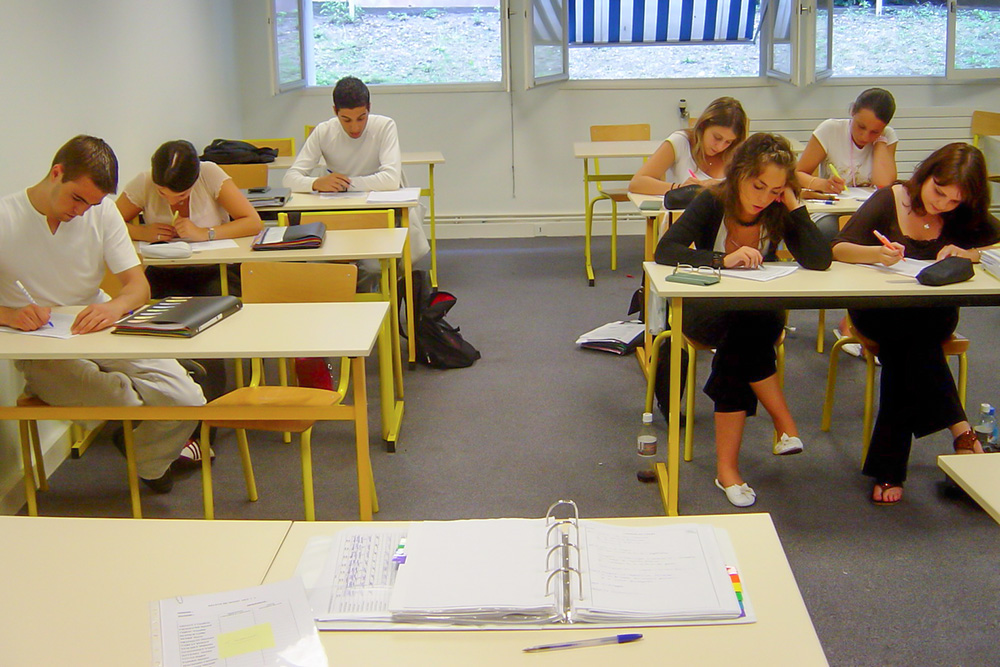
Social and Cultural Impact
Another area where France stands out is the cultural and social impact of la rentrée.
Back to school is primarily an event for students and their families in many countries.
In France, however, it resonates across society.
The entire country seems to shift gears as la rentrée approaches, with everything from TV programming to public transportation schedules adjusting to accommodate the return to school.
This nationwide focus on la rentrée underscores its importance as a cultural event, not just an educational one.
Back to School in France: Challenges and Criticisms
While la rentrée des classes is a cherished tradition in France, it has challenges and criticisms.
Like any major event, it brings a set of pressures and difficulties that can affect students and parents.
Parental Pressure and Financial Burden
One of the most significant challenges of la rentrée is its financial burden on families.
The school supply list (fournitures scolaires) can be long and specific, and buying everything can become quite expensive.
From notebooks to specialized calculators, the costs can add up quickly.
This is especially true for families with multiple children, where the expenses can be overwhelming.
Despite the excitement of buying new things, la rentrée can be financially stressful for many parents.
To address this issue, some schools and local governments have started initiatives to help ease the burden.
For example, certain schools might offer textbook rental services or provide some supplies for free.
Additionally, the French government offers a back-to-school allowance (allocation de rentrée scolaire) to help low-income families cover these costs, but the challenge remains significant for many.
Educational Reforms and Debates
The French education system is known for its rigour and structure, but this also means that la rentrée often sparks debates about educational reforms.
Every year, discussions are held about improving the system, whether by adjusting the curriculum, addressing teacher shortages, or dealing with the challenges of overcrowded classrooms.
In recent years, there’s been much talk about how to make the French school system more flexible and adaptive to students’ needs.
Some critics argue that the current system is too rigid, placing too much pressure on students from a young age.
The start of the school year is often a time when these debates come to the forefront as parents, teachers, and policymakers consider how to best support students in their education.
Emotional and Social Challenges
La rentrée is not just about academic challenges; it’s also an emotional and social experience.
For many students, the start of the school year brings anxiety, particularly if they’re entering a new school or moving up to a new grade.
The social dynamics of la rentrée can be tricky to navigate, especially for younger children still learning to make friends and fit in.
Watching their children deal with these challenges can be difficult for parents.
There’s a lot of pressure to ensure their kids have a “successful” rentrée, which can mean different things to different families.
For some, it’s about academic achievement; for others, it’s about social integration or emotional well-being.
Balancing these different priorities can be tough, and it’s not uncommon for parents to feel overwhelmed during this time.
Adapting to Change
Finally, one of the biggest challenges of la rentrée is simply adapting to change.
After the long, relaxed summer days, the sudden shift back to school routines can be jarring for everyone involved.
Students have to adjust to waking up early, managing homework, and navigating the demands of a new school year.
Parents, too, must adapt to the new schedules, help with homework, and coordinate after-school activities.
This adjustment period can be stressful, but it’s also a time of growth.
La rentrée marks the beginning of a new chapter, full of opportunities and challenges alike.
By approaching it with a positive mindset and being prepared for the inevitable bumps in the road, both students and parents can make the most of this critical time.

Conclusion
Back to school in France—or la rentrée des classes—is more than a return to the classroom.
It’s a national event that touches every aspect of life, from the excitement of buying new school supplies to the emotional challenges of starting fresh.
For students, parents, teachers, and even those without school-aged children, la rentrée is a time of transition that signals the end of summer and the start of a new chapter.
Throughout this article, we’ve explored the structure of the French education system, the cultural significance of la rentrée, and the ways families prepare for this big day.
We’ve compared the French experience with other countries and looked at some of the challenges that come with the start of the school year.
What stands out the most is how deeply ingrained la rentrée is in French culture.
It’s a shared experience that unites the entire country, creating a sense of rhythm and structure throughout the year.
Whether it’s the buzzing anticipation of the first day, the careful planning that goes into preparing for school, or the broader societal impact, la rentrée des classes is a fascinating tradition reflecting education’s importance in France.
As you reflect on your own back to school experiences—whether in France or elsewhere—it’s clear that this time of year is filled with both challenges and opportunities.
It’s a chance to start anew, set new goals, and embrace the possibilities of the year ahead.
While it might bring its share of stress, la rentrée also brings a unique sense of excitement and renewal, making it one of the most important events in the French calendar.
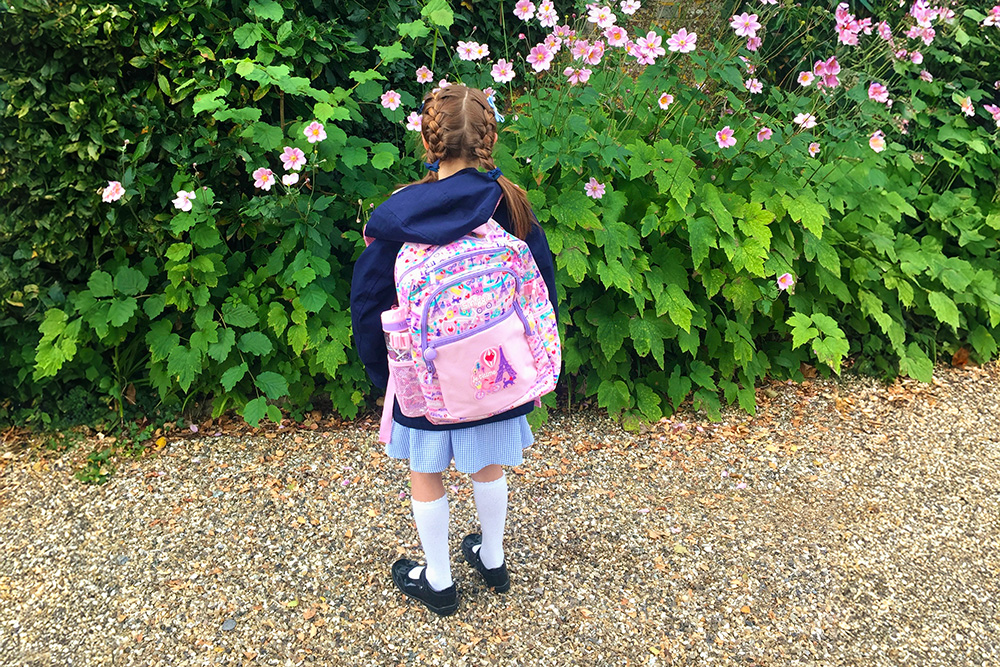
Back to School in France: 7 Additional Tips
To make the most of back to school in France, here are some practical tips and insights that can help you and your family navigate la rentrée with ease:
1. Start Early with Shopping
Avoid the last-minute rush by starting school shopping when you receive the supply list.
Not only does this give you time to find everything on the list, but it also allows you to shop around for the best deals.
Plus, getting a head start means less stress as la rentrée approaches.
Involve your children in the process—it can make them feel more prepared and excited about the new school year.
2. Establish a Routine Before School Starts
To make the transition from summer to school smoother, gradually reintroduce a school routine a week or two before la rentrée.
This might include earlier bedtimes, waking up at the same time each morning, and setting aside time for reading or light study.
A predictable routine helps ease the shock of the first day back and sets a positive tone for the year.
3. Visit the School Ahead of Time
If your child is starting at a new school, visiting the school together before la rentrée is a great idea.
Many schools offer open days or orientation sessions, but even a simple walk around the grounds can help familiarise your child with their new environment.
Knowing where their classroom is, where they’ll eat lunch, and where the bathrooms are can significantly reduce first-day nerves.
4. Talk About Expectations
Discussing what to expect on the first day can help alleviate anxiety.
Talk to your child about their new schedule, the subjects they’ll be studying, and the activities they might want to join.
Encourage them to share any concerns they have and offer reassurance.
Understanding what’s ahead can make la rentrée feel less daunting and more manageable.
5. Stay Organized
Organization is key to a successful rentrée.
Set up a designated spot at home for school supplies, homework, and backpacks.
A family calendar can be incredibly helpful for keeping track of important dates, such as parent-teacher meetings, extracurricular activities, and school holidays.
Staying organised from the start helps prevent chaos later on.
6. Embrace the Emotional Side of “La Rentrée”
La rentrée is an emotional time, and it’s okay to acknowledge that.
Whether it’s your child’s first day at a new school or just the start of a new grade, there will be a mix of emotions—excitement, nervousness, and maybe even a few tears.
Take time to listen to your child’s feelings and offer support.
Remember, it’s a big transition for everyone involved, and being there for each other can make all the difference.
7. Celebrate the Start of the School Year
Finally, consider making la rentrée a celebration.
Whether it’s a special breakfast on the first day or a fun family activity after school, celebrating the start of the school year can set a positive tone.
It’s a way to mark the occasion and recognize the effort that goes into preparing for this important day.

We’d Love to Hear From You!
I’ll be honest—for me, back to school wasn’t something I looked forward to.
La rentrée des classes always came too soon, cutting short those long, lazy summer days.
But I know that everyone has their own experience with back to school, and that’s what makes it so interesting!
I’d love to hear your stories, whether you’ve experienced la rentrée in France or a similar event in your own country.
What were your feelings about going back to school?
Did you feel the same way I did, or was it something you looked forward to?
How did you and your family prepare for the big day?
Share your back to school experiences in the comments below, and let’s start a conversation!
Your stories can bring back memories, offer new perspectives, and show just how unique and special this time of year is—no matter where you are in the world.

